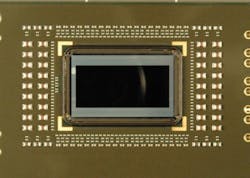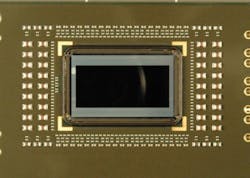Eight companies chosen for $7.2 billion program to fight electronics obsolescence
MC CLELLAN, Calif. - Eight major U.S. defense contractors are helping to fight the effects of electronics obsolescence and solve problems of unreliable, unmaintainable, under-performing, or incapable electronics hardware and software under a potential $7.2 billion, 12-year program.
Officials of the Defense Microelectronics Activity (DMEA) in McClellan, Calif., announced contracts to eight companies for the Advanced Technology Support Program IV (ATSP4). The eight ATSP4 contractors are:
- BAE Systems Electronic Systems in Nashua, N.H.;
- The Boeing Co. in Hazelwood, Mo.;
- The Lockheed Martin Corp. Mission Systems and Training (MST) segment in Owego, N.Y.;
- Cobham Semiconductor Solutions in Colorado Springs, Colo. (formerly Aeroflex);
- General Dynamics Mission Systems in Minneapolis;
- Honeywell Aerospace in Albuquerque, N.M.;
- The Northrop Grumman Corp. Mission Systems segment in Linthicum Heights, Md.; and
- the Raytheon Co. Space and Airborne Systems segment in El Segundo, Calif.
These companies will share as much as $7.2 billion in orders over 10 years to support U.S. military technology and weapons development, as well as those of foreign militaries.
Contracts for a second potential $800 million project, part of this program, are reserved for small business and have not been announced.
The ATSP4 seeks to develop a quick reaction capability to develop technologies necessary to keep military systems operational, elevate their sophistication levels, and meet new threats.
ATSP4 orders may include developing components to meet the Pentagon's requirements for ultra-low volumes, extending component availability, or ensuring a trusted, assured, and secure supply of microelectronics.
The job also involves the quick application of advanced technologies to upgrade military weapons performance in response to traditional and irregular threats, as well as to the problems of aging weapon systems.
The ATSP4 program seeks to increase warfighter capabilities and solve electronics support problems like reliability, maintainability, and obsolescence by inserting advanced microelectronics into weapon systems.
The ATSP4 program covers hardware and software and includes studies, analysis, design, software, simulation, prototyping, integration, testing, producibility, and limited production.
Work on the ATSP4 program should be finished by March 2028.
FOR MORE INFORMATION visit the DMEA online at www.dmea.osd.mil.

